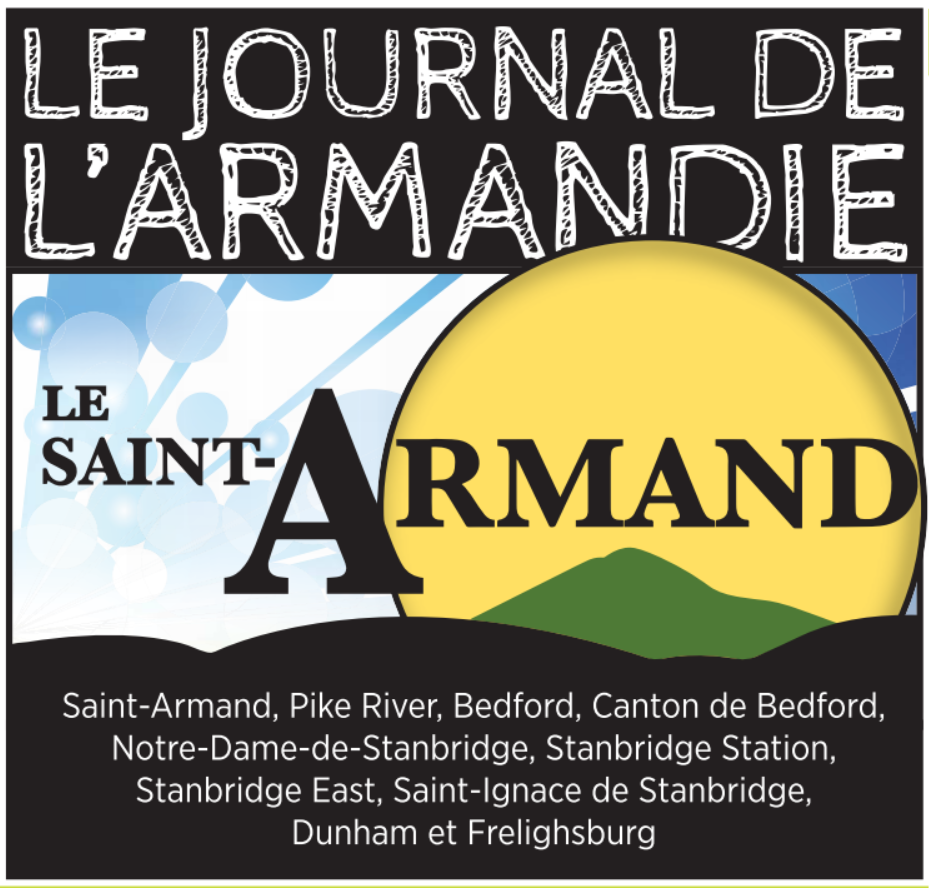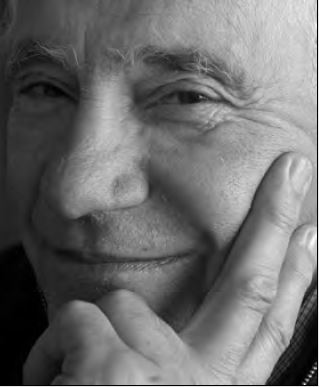Alexander Fodor (Photo : Robertgalbraith.com)
Dans ce numéro, Sandy Montgomery dresse le portrait d’Alexander Fodor, originaire de Hongrie, qui a dû fuir son pays lors de la répression soviétique pour s’installer au Canada. La littérature russe est le champ d’expertise de monsieur Fodor, qui est connu dans le monde entier pour ses travaux sur le grand auteur du XIXe siècle, Léon Tolstoï.
In 1975, Alexander Fodor bought a farm at the south end of Guthrie Road. He has done his best to keep up his orchard but the deer have made it increasingly difficult. Fortunately, Mr. Fodor does not have to rely on his success working the land for his standing in the world.
Mr. Fodor of Saint-Armand is a world-famous scholar known in the world of Russian studies for his contributions to the understanding of the life and work of Leo Tolstoy, the giant of nineteenth century Russian literature.
Mr. Fodor’s life is an adventure. He was born in 1930 in western Hungary, near the Austrian border into a prominent family. His father had a notable military career ; his grandmother was a countess.
At the end of the Second World War, the Soviet Union controlled the territory of Hungary. The propertied and learned peoples were considered bourgeois social pariahs. There were no opportunities available to young Mr. Fodor.
It was only by obscuring his origins that he obtained acceptance in 1950 as a student at the University of Leningrad in Russia.
Some readers will remember Mr. Fodor’s account of his student days, entitled “Insulting Stalin”, which the Lake Champlain Weekly published. He was denounced by his Russian roommate for having doubted that Josef Stalin “was the greatest genius that mankind ever produced”. Indeed, not long before he was due to graduate, the university told him he would not receive his degree, all because of his past irresponsible remarks. In the weeks following this heart-breaking news, Stalin’s successor as leader publicly denounced Stalin’s character and failures. Now that the great leader had been officially discredited, the university was free to grant Mr. Fodor his degree.
He returned to Hungary not long before the anti-Soviet revolt in Hungary lasting from 23 October to 4 November 1956 which was suppressed by Soviet troops. He was among the two percent of the population of Hungary who fled to the West. In all, 36,000 Hungarians came to Canada.
History changed on October 4, 1957, when the Soviet Union successfully launched Sputnik I, the world’s first artificial satellite. This event marked the start of the space age and the U.S.-U.S.S.R space race ; it awakened interest in all matters Russian.
McGill University set up the program which is now the Department of Russian and Slavic Studies. The university called upon the Canadian immigration authorities for help in recruiting someone able to catalogue a collection of Russian books the university had received. Fodor was just the man. Thus accidentally began an academic career in a new home. Mr. Fodor mastered two new languages and obtained masters and doctoral degrees at the Université de Montréal.
During his 30-year career at McGill University as a teacher and scholar, he led student research tours to the Soviet Union, always being careful to fully disclose that he was among those who had fled from the East and the Soviet domination of his homeland.
Mr. Fodor is best-known for his teaching and two well-regarded books and many articles on Leo Tolstoy, widely regarded as one of the greatest of all novelists. His masterpieces War and Peace and Anna Karenina stand at the peak of realistic fiction. Who can forget the classic first sentence of Anna Karenina : “Happy families are all alike ; every unhappy family is unhappy in its own way”.
Tolstoy was also a philosopher, a Christian anarchist, a pacifist, an educational reformer and a vegetarian. As a moral philosopher he was notable for his ideas on non-violent resistance, which in turn influenced such twentieth-century figures as Mahatma Gandhi and Martin Luther King, Jr. He was a public figure who in his last days repudiated all religious institutions. He was excommunicated by the church and persecuted by the state. New of his death in 1910 set off student demonstrations and street riots. No wonder Mr. Fodor has found so much fascination on Leo Tolstoy.
Mr. Fodor now tends his farm and garden, but still routinely sets aside time to write.
Autres articles
Laisser un commentaire
Nous n’acceptons pas les commentaires anonymes et vous devez fournir une adresse de courriel valide pour publier un commentaire. Afin d’assumer notre responsabilité en tant qu’éditeurs, tous les commentaires sont modérés avant publication afin de nous assurer du respect de la nétiquette et ne pas laisser libre cours aux trolls. Cela pourrait donc prendre un certain temps avant que votre commentaire soit publié sur le site.
Laisser un commentaire
Avez-vous lu?
- Christian Marcotte : entre culture… et culture
- Les Gosselin de Notre-Dame
- Falardeau, l’homme révolté
- Les frères Edson, des personnalités à redécouvrir
- Apprendre… et aller plus loin
- J.A. Fortin, photographe à Bedford
- Guy Dufresne, le poète de Frelighsburg
- Guy Dufresne
- Le parcours atypique d’Ananda et de Mikala
- Aux 2 clochers

















Dear friends: I’m trying to contact Mr. Fodor to translate his book con Tolstoy and the quest for a Non-Violent Russia into Spanish. I hope you can help me finding him.
Unfortunetly, Alexander Fodor died several years ago an we lost contact with his family